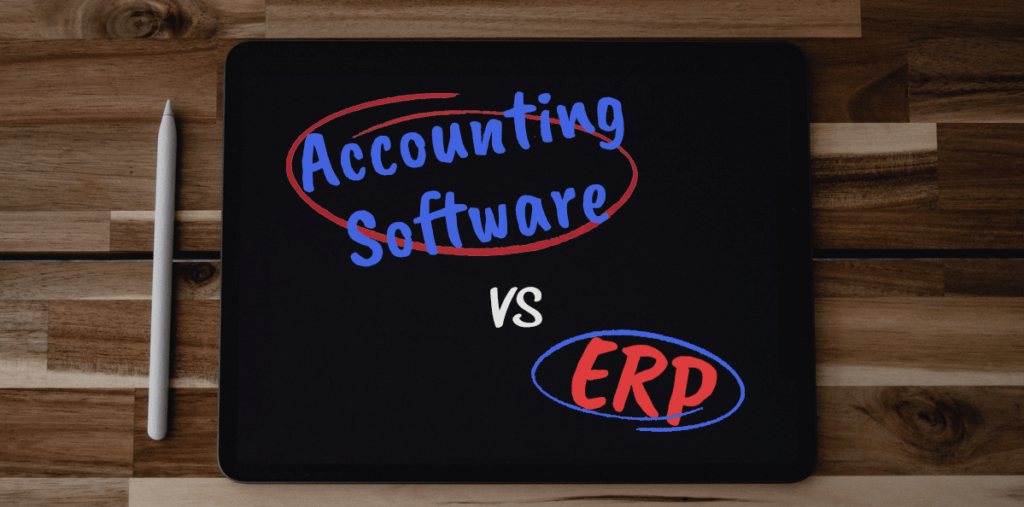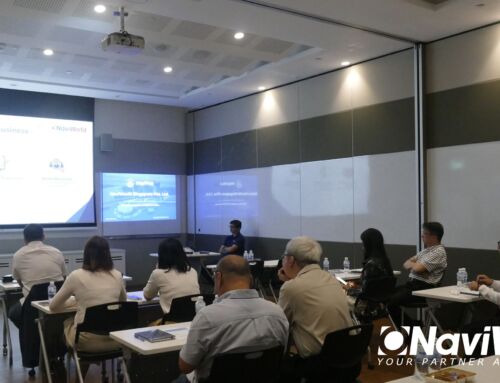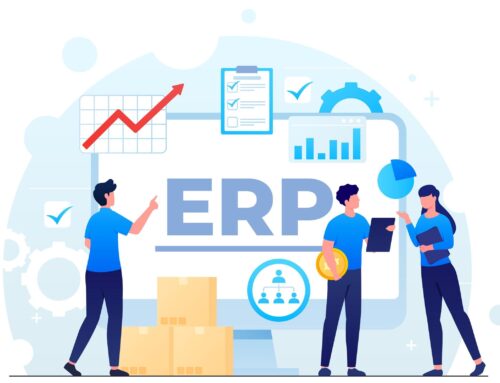
Differences between Accounting Software and ERP
Enterprise Resource Planning (ERP) systems are an integral part of the business landscape these days. They help companies to streamline their business processes and manage their operations efficiently. Due to the popularity of ERP over the last twenty years, some accounting software has evolved or rebranded itself as an ERP.
This article explains the differences between accounting software and an ERP (Enterprise Resource Planning). It will also help readers to decide if your organization needs an accounting software or an ERP system.
What is Accounting Software
So, what is accounting software? The primary purpose of accounting software is to handle accounting requirements such as:
- Accounts receivable—where the company enters money received
- Accounts payable—where the company enters its bills and pays money it owes
- General ledger—the company’s “books”
- Billing—where the company produces the invoices to its clients/customers
- Bookkeeping—where the company records collection and payment
- Financial close management — where accounting teams verify and adjust account balances at the end of a designated period
Some accounting software has extended its functionalities to cater to the everyday tasks of trading/distribution companies. These functionalities include:
- Stock/inventory—where the company keeps control of its inventory
- Purchase order—where the company orders inventory
- Sales order—where the company records customer orders for the supply of inventory
These extended functionalities bring the accounting software into the ERP category.
What is Enterprise Resource Planning (ERP)
Enterprise resource planning (ERP) is the integrated management of main business processes, often in real-time and mediated by software and technology.
An ERP system is usually referred to as a category of business management software—typically a suite of integrated applications. It allows an organization to collect, store, manage and interpret data from various business activities.
ERP provides an integrated and continuously updated view of core business processes using common databases. The database is maintained by a database management system. It can help to track business resources such as cash, raw materials, production capacity. It will also help to track the status of business commitments such as orders, purchase orders, and payroll. The applications that make up the system share data across various departments (manufacturing, purchasing, sales, accounting, etc.). Data from each department is formed in one big database. The ERP then facilitates information flow between all the business functions and manages these connections to outside stakeholders.
In short, ERP manages your business from your “Order” to receiving the “Cash”.
On top of what extended accounting software is offering, ERP may include functionalities such as manufacturing, project management, service management, customer relationship management, retail, etc.
History of Enterprise Resource Planning (ERP)
How has Enterprise Resource Planning (ERP) evolved?
Computing was born in the 1960s as modern factory production increased. ERP began as a software called Materials Requirements Planning – or MRP.
By 1975, MRP software was only affordable for large manufacturers and ran on enormous mainframe computers. Financial management software was being developed at this time, too, albeit in isolation from other systems.
In the 1980s, MRP developed and grew in capabilities, later becoming what many termed MRP II or Manufacturing Resource Planning. MRP II had better manufacturing processes and capability, especially around capacity requirements.
It wasn’t until the 1990s that the acronym, ERP, was first used for Enterprise Resource Planning. ERP was an extension of MRP and MRP II, having additional functionalities associated with a company’s “back office”. These functionalities include elements such as engineering, finance and accounting, HR, and project management.
In 2000, the Gartner Group, again, had a hand in the history of ERP when they coined the term – ERP II. ERP II is a web-based software that has expanded capabilities that can integrate with systems outside of the business. The integration involved systems such as supply chain management, customer relationship management (CRM), and business intelligence.
The ERP systems today are very advanced. They are often cloud-based, delivered via the software as a service (SaaS) model. They can be accessed remotely via advance web-based applications and even through mobile devices. ERP systems are also incredibly flexible, and every vendor’s tool is different.
Modern ERP solutions not only address manufacturing, supply chain, and financial and accounting capabilities but encompass other areas as well. Today’s ERP systems have advanced features like reporting and business intelligence, sales force and marketing automation, eCommerce, as well as service and warranty management.
When Do You Consider a Software an ERP?
With some accounting software branding themselves as an ERP system, this has further confused the users in recognizing one from the other. With the overlapping functionalities between the two, how do you identify accounting software from an ERP?
To differentiate the two, we can look at some unique strengths and characteristics of an ERP:

Differences between Accounting Software and ERP
Configuration Differences
The consultant can configure ERP software without programming to perform business processes in various ways. For example, in ERP software, there are multiple ways of processing sales order and shipping products. An ERP consultant can configure these processes without programming the software.
Accounting software, on the other hand, is usually more straightforward and fixed in the business processes.
Implementation Differences
The implementation process of accounting software usually focuses on user training. Configuration and system set up are typically done within the training sessions. Simpler implementation processes are made possible since configurations to the software are limited.
Whereas for ERP implementation, the methodology focuses on analysis and design. The consultant will first interview the key users to understand the business requirements during the analysis phase of the project. He will then configure the ERP before continuing to the rest of the implementation processes.
As such, the consulting services for ERP will be much higher than accounting software. The duration of an ERP implementation will also be much longer in comparison.

ERP Implementation Methodology
Depository of Data
ERP is a natural depository of your company’s operations and business data. It keeps all of your business transactions in one single database. This database serves as part of the big data for analytics and AI.
An ERP system is designed to store a large amount of data. They usually run on databases such as Microsoft SQL, Oracle, or other larger databases. Often, there will be many off-the-shelf Business Intelligent and Analytic tools that will work with these databases.
For accounting software, most of them run on free or cheap proprietary databases (E.g. Access) to keep their prices low. However, the performance of these databases will suffer from an increased database size.
Integration Differences
The most prominent strength of ERP is its ability to integrate with different systems and applications of the business. This involves the integration of various modules within the ERP. These modules may include manufacturing, service management, project, etc. A good ERP will also have the ability to integrate with external systems such as eCommerce, retail, Business Analytics, etc.
Cost Differences
Higher Software Price
Longer Implementation Duration
When Do You Need ERP
So, how do you decide if your company needs an ERP system or accounting software?

When to Invest in an ERP System
Managing Beyond your Line-of-Sight
I have a simple rule of thumb in deciding if your company needs an ERP system. Has your company grown to a stage where you need to manage beyond your line-of-sight?
Accounting software should be sufficient for your business needs if you can easily identify the status of key business activities in your company. Also, if your company has low transaction volume or smaller operations, accounting software or even outsourcing your accounting function is generally sufficient.
However, if you start noticing the following symptoms:
- Frequent delivery problems such as wrong item delivery, wrong quantity, or even missed delivery.
- Inventory problems such as unable to obtain accurate and updated inventory information.
- Challenges in obtaining product or project costs, especially when there is a need to track costs to recognize the correct revenue timely.
- Delayed or missed invoicing and payment collection.
- You need complex analysis and reports of your business information and business planning.
- When the company cannot function if you are away for one month.
These are some of the common red flags to indicate that the accounting software is unable to handle your business growth. If these issues persist for months, it is time for you to consider investing in an ERP system.
Integration
If you are comfortable with your staff manually extracting information from multiple systems – i.e. eCommerce, retail POS, etc. – and entering them into the accounting software, you can continue using the accounting software.
However, if you have high transaction volume from your retail POS and eCommerce, manually passing information from one system to another can be a painful process. It can also be very time consuming for your staff, lowering your business productivity in the long run. In this case, ERP should be a solution that you need to seriously look into. Also, if you need this information timely and in a centralized manner, the need for an ERP system will be evident.
ROI
Project ROI is the key factor in deciding if your business should change to an ERP system.
Evaluate the cost of the ERP project against your potential savings. Your potential savings could be from:
- Business processes such as automating manual tasks using the ERP.
- Reports and analyses that you need, but are too time-consuming or even impossible to generate from the existing system.
- Headcount that you can save on or redeploy to other business functions
Buyer Beware
As always, not all companies need an ERP.
Integration of some Business Processes May Not Make Sense
Some business process integration may not make sense, such as the integration of payroll into the ERP system. There are two reasons for this:
- There is a lack of privacy in storing the detailed salary of each employee in an ERP database. Administrators who were permitted the ERP database may also be able to access this sensitive information.
- Most of the time, the need for detailed information and the frequency of the integration do not justify the cost. However, there may be exceptions where this integration makes sense i.e. when it is too demanding to track the timesheets of your staff manually.
Implementation
Implementation is the key to a successful ERP project, not just the software. Always remember, the most expensive ERP project is the one that failed.
Short-term versus Long-Term Cost
Compare the short-term versus your long-term cost. You can save up on your costs now by implementing cheaper accounting or ERP software. However, make sure you do not end up paying for higher operations costs in the long run!
Do It Only When You Can Afford It
Just because government grants or subsidies exist does not mean you should rush headlong into an ERP project. Always be clear that the costs of an ERP project include both the efforts needed by your employee and the risk of running a project failure.
Only do it when you are sure that even without the government grants or subsidies, there is sufficient ROI for the ERP project. So treat these government grants and subsidies as a bonus.
Conclusion
Ultimately, whether a company chooses an accounting software or an ERP software comes down to the judgment call of its management.
But for many companies, the returns of a good ERP implementation often outweigh the efforts and costs of the ERP project.
A wise selection of the appropriate ERP solution and quality ERP implementation will always bring the highest ROI to your company.
If you like to discuss further and understand more about ERP, please do not hesitate to contact us.



